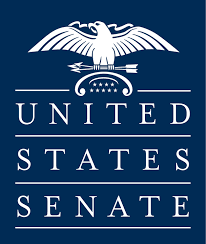The Steadily-Dying Sierra Nevadas
Drought, Bark Beetle Infestation, Climate Change Imperil Sierra Pine Forests
Like over 600 other environmental lawyers, professors, law students and regulators, I attended the 25th annual Environmental Law Conference at Yosemite last weekend. As always, the Conference--sponsored by the California State Bar's Environmental Law Section--was a big success, filled with inspirational speakers and thought-provoking panels. But the major topic of conversation--during the Conference proceedings, in hallway conversations and on outdoor hikes in Y...
CONTINUE READINGGuest Bloggers Alice Kaswan and Kirsten Engel: Untapped Potential: Emissions Reduction Initiatives Beyond Clean Power Plan Are Warranted, Workable
New Report Analyzes Potential for Further Emissions Reduction from Existing Sources
Guest post by Alice Kaswan (University of San Francisco School of Law), Kirsten H. Engel (University of Arizona School of Law) It's been a month since the D.C. Circuit heard oral arguments on the Clean Power Plan, and the nation is in wait-and-see mode. But our report, Untapped Potential: The Carbon Reductions Left Out of EPA's Clean Power Plan, released today by the Center for Progressive Reform, shows that, even if the Plan is upheld, continued climate initiatives t...
CONTINUE READINGEnergy & Environment in the Indiana Governor’s Race
Whither the Hoosier State?
Governors’ races don’t get as much publicity as the national contests. Most governors’ races are off-year elections, giving them even less visibility, but a minority of states do hold these elections in presidential election years. Despite their lack of national visibility, the outcomes matter. We live in a federalist system, and states have a significant ability to shape environmental and energy policy. They can cooperate with and even go beyond federal policy, o...
CONTINUE READINGBattle for the Senate: A Ten State Roundup
The stakes for environment and energy policy are high in this year's Senate elections.
Control of the Senate is important for many reasons, including the majority party’s control over the agenda and its power to launch investigations. Given that the Republicans are in such a strong position in the House, it matters even more than usual which party controls the other chamber. The parties are far apart on many issues, notably including environmental and energy policy. This is the last in a series of blog posts on the critical races. Previous posts ha...
CONTINUE READINGWhat’s The Future Of California’s High Speed Rail System?
Join My KALW Radio Conversation Tonight With Authority Chair Dan Richard At 7pm
California's high speed rail system has been moving at a low speed since voters approved a bond issue to launch it in 2008. That ballot measure authorized a bullet train from San Francisco to Los Angeles and eventually Anaheim, at speeds of 220 miles per hour and stops in Central Valley cities like Fresno and Bakersfield. The total trip time would be no more than 2 hours and 40 minutes between the two big cities, at fares less than airplane travel. The rationale for t...
CONTINUE READINGOctober Surprises: A Month of Major Advances in Climate Policy
October has seen major strides toward controlling greenhouse gases.
As the campaign seems to get more and more awful, I thought you might like to hear some good news. Behind the tumult of the campaign, there has been real progress in addressing climate change in the U.S. and around the world. In particular, there were four major advances just this month. The first is that the Paris Agreement is about to go into effect. Before that could happen, the Agreement had to be ratified by at least 55 countries accounting in total for...
CONTINUE READINGBattle for the Senate: North Carolina
An unexpectedly close Senate race in the Tar Heel State.
The North Carolina case features Deborah Ross (D) against incumbent Richard Burr (R). Neither is a well-known figure nationally. Ross was a lawyer and state representative. More surprisingly for a candidate in a Southern swing state, she served as executive director for the state ACLU. Her website reports that she had a 94 percent lifetime score from the North Carolina League of Conservation Voters. (This is the first time I’ve ever seen a reference to a state LCV...
CONTINUE READINGOf Initiative Wars, Plastic Bags and Poison Pills
Deciphering California's (Intentionally) Confusing Plastic Bag Propositions
California's longstanding efforts to eliminate single-use plastic bags from the marketplace and the environment have finally reached California voters. The November 8th general election ballot contains a breathtaking 17 separate propositions--16 proposed initiative measures and one referendum measure. Propositions 65 and 67 both deal with the same subject--a proposed ban on single-use plastic bags. Those dueling measures are confusing--intentionally so. To ...
CONTINUE READINGCutting HFCs under the Montreal Protocol — A few thoughts
Yup, international diplomacy is slow. One year ago, at their last meeting, the parties to the Montreal Protocol decided to proceed with negotiating an amendment to the treaty to limit HFCs. They negotiated that amendment in several sessions over the past year, and adopted it last Friday at the end of their 2016 meeting in Kigali, Rwanda. I posted a discussion of the background issues involved with that decision at the time, and Sarah Duffy posted a discussion of th...
CONTINUE READINGGlobal Climate Cabal Revealed!!
Now it can told! Exclusive interview with cabal leader.
My eyes were opened at last.Last week, one Presidential candidate accused the other of meeting “in secret with international banks to plot the destruction of U.S. sovereignty in order to enrich these global financial powers.” The candidate also spoke of a global conspiracy of multinational corporations and media. Inspired by this speech, I was able to contact a member of this international cabal in their secret headquarters in Zurich. It turns out you just dia...
CONTINUE READING









